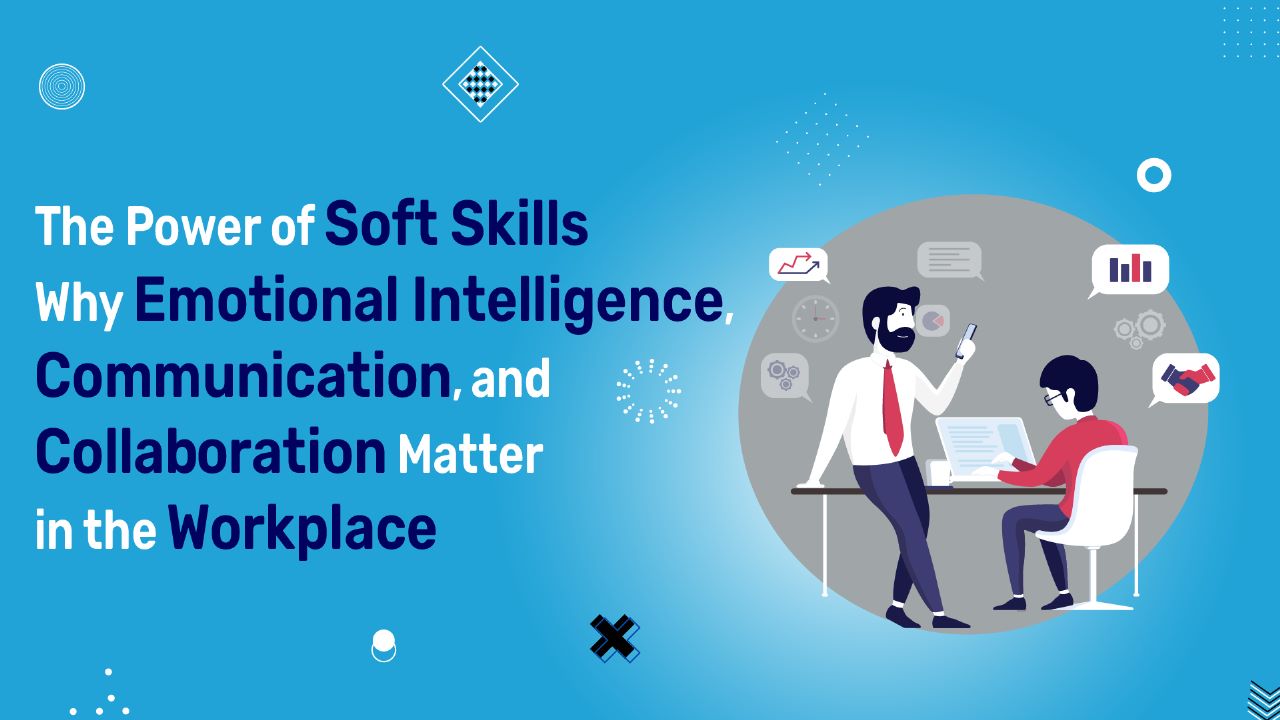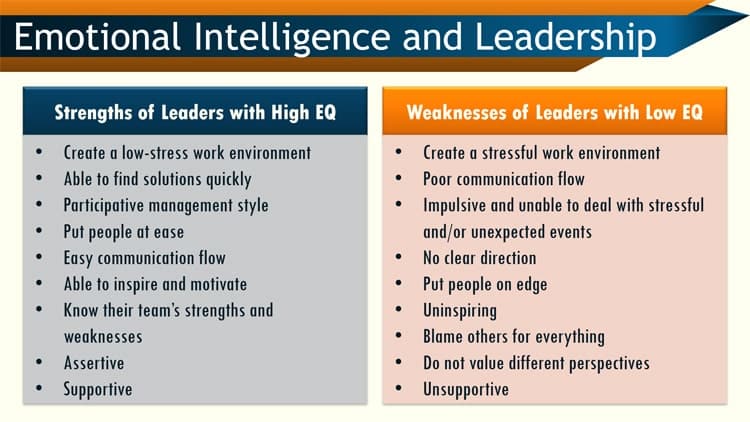In today’s interconnected world, it is crucial to possess cultural sensitivity and emotional intelligence in order to navigate diverse interactions successfully. Understanding and respecting the customs, beliefs, and values of different cultures allows us to foster meaningful connections and establish trust. Additionally, emotional intelligence enables us to effectively manage our own emotions and empathize with others, leading to more harmonious relationships. By developing these skills, we can become better versions of ourselves, fostering greater happiness and fulfillment not only within ourselves but also in our interactions with others. So, let’s delve into the importance of cultural sensitivity and emotional intelligence and explore ways to enhance them in our daily lives.
Understanding Cultural Sensitivity
In today’s increasingly interconnected world, cultural sensitivity has become a crucial skill for individuals to navigate diverse interactions successfully. Cultural sensitivity refers to the awareness, understanding, and appreciation of different cultures and the ability to interact respectfully and effectively with people from diverse backgrounds. It involves recognizing and respecting cultural norms, values, and practices, and avoiding behaviors or comments that may be offensive or insensitive.
Definition of Cultural Sensitivity
Cultural sensitivity is the ability to recognize, understand, and appreciate the unique characteristics of different cultures. It involves having an open mind and a willingness to learn about and engage with diverse perspectives and ways of life. Cultural sensitivity goes beyond mere tolerance and encompasses a deep respect for the values, customs, and beliefs of other cultures.
Benefits of Cultural Sensitivity
Developing cultural sensitivity can have numerous benefits in both personal and professional settings. By fostering a greater understanding of different cultures, individuals can enhance their interpersonal skills, build stronger relationships, and communicate more effectively with people from diverse backgrounds. Cultural sensitivity also promotes empathy and allows individuals to view the world through a broader lens, expanding their horizons and promoting personal growth.
Furthermore, in an increasingly globalized world, cultural sensitivity is a valuable asset in the workplace. It can help individuals navigate cross-cultural collaborations and international business dealings, leading to improved teamwork and higher productivity. Employers also value cultural sensitivity as it contributes to a positive work environment and can prevent misunderstandings or conflicts arising from cultural differences.
Developing Cultural Sensitivity
Developing cultural sensitivity is an ongoing process that requires self-reflection, education, and practice. Here are some strategies to enhance your cultural sensitivity:
- Embrace Diversity: Actively seek out opportunities to learn about different cultures and perspectives. Engage in activities that expose you to diverse cultures, such as attending cultural festivals, joining multicultural clubs or organizations, or traveling to different countries.
- Educate Yourself: Take the initiative to educate yourself about various cultures, their histories, traditions, and customs. Read books, watch documentaries or films, and engage with online resources to gain a deeper understanding of different cultures.
- Listen and Ask Questions: Practice active listening and ask questions when interacting with individuals from diverse backgrounds. Show genuine curiosity and respect for their culture, and be open-minded to learn from their experiences and perspectives.
- Challenge Stereotypes: Recognize and question any stereotypes or biases you may hold about different cultures. Challenge negative assumptions and strive to see individuals as unique individuals rather than representatives of their culture.
- Be Respectful: Show respect for cultural differences, including beliefs, practices, and customs. Avoid making generalizations or judgments based on stereotypes. Treat others with dignity and honor their cultural traditions, even if they differ from your own.
Remember, developing cultural sensitivity is a continuous journey that requires an open mind, humility, and a willingness to learn and grow. By cultivating cultural sensitivity, you can become a more effective communicator, foster stronger relationships, and contribute to a more harmonious and inclusive world.
Emotional Intelligence and its Importance
Emotional intelligence is another essential skill that complements cultural sensitivity in navigating diverse interactions. Emotional intelligence, often abbreviated as EI or EQ, refers to the ability to recognize, understand, and manage our own emotions, as well as effectively recognize, understand, and respond to the emotions of others.
Definition of Emotional Intelligence
Emotional intelligence encompasses a range of emotional competencies that enable individuals to navigate their own emotions and effectively interact with others. It involves self-awareness, self-regulation, empathy, motivation, and social skills.
Self-awareness is the foundation of emotional intelligence. It involves recognizing and understanding our own emotions, strengths, weaknesses, and triggers. Self-regulation, on the other hand, is the ability to manage and control our emotions, impulses, and reactions in a constructive manner.
Empathy, a key component of emotional intelligence, is the ability to understand and share the feelings of others. It involves putting ourselves in someone else’s shoes and viewing situations from their perspective. Motivation refers to the ability to set and pursue goals, persevere in the face of obstacles, and maintain a positive attitude.
Lastly, social skills encompass a wide range of interpersonal abilities, including effective communication, conflict resolution, and the ability to build and maintain relationships.
The Impact of Emotional Intelligence
Emotional intelligence plays a significant role in personal and professional success. Individuals with high emotional intelligence tend to have healthier relationships, make better decisions, and navigate conflicts more effectively. They are better able to manage stress, adapt to change, and collaborate with diverse teams.
Moreover, emotional intelligence is closely linked to effective leadership. Leaders with high emotional intelligence are skilled at inspiring and motivating others, resolving conflicts, and fostering a positive work environment. They are excellent communicators and can create a sense of belonging and trust within a team.
Research has also shown that emotional intelligence is strongly correlated with mental well-being and overall life satisfaction. Individuals with higher emotional intelligence tend to have better self-esteem, cope more effectively with stress, and have stronger emotional resilience.
In summary, emotional intelligence is a critical skill set that underpins positive relationships, effective communication, and personal well-being. By developing emotional intelligence, you can enhance your ability to connect with others, manage your own emotions, and navigate diverse interactions successfully.
The Connection Between Cultural Sensitivity and Emotional Intelligence
Cultural sensitivity and emotional intelligence are closely intertwined, complementing each other in navigating diverse interactions. Both skills involve recognizing, understanding, and responding to the emotions and cultural nuances of others.
Recognizing Emotions Across Cultures
Cultural sensitivity requires the recognition and understanding of the emotions expressed by individuals from different cultural backgrounds. Emotions can be conveyed differently across cultures, and what may be considered appropriate or inappropriate expressions of emotion can vary significantly. By developing emotional intelligence, individuals can enhance their ability to recognize and interpret these cultural cues accurately.
For example, in some cultures, openly expressing negative emotions may be perceived as disruptive or disrespectful. In contrast, other cultures may encourage the open display of emotions as a means of building trust and fostering authentic connections. By being emotionally intelligent, individuals can adapt their behavior to align with cultural norms, fostering positive interactions and avoiding potential misunderstandings.
Respecting Cultural Norms and Values
Cultural sensitivity involves respecting the norms, values, and customs of different cultures. Emotional intelligence allows individuals to understand and acknowledge the deeply held beliefs and values that shape behavior in diverse cultural contexts. By demonstrating empathy and respect for these cultural norms, individuals can establish trust and build strong relationships with people from different backgrounds.
Emotional intelligence also helps individuals avoid making assumptions or judgments based on their own cultural lens. It enables individuals to recognize that their emotions and reactions may be influenced by their cultural upbringing and biases, preventing them from projecting their own values onto others.
Building Empathy and Cultural Understanding
Empathy is a fundamental component of emotional intelligence and an essential quality for cultural sensitivity. By developing empathy, individuals can better understand and appreciate the experiences, perspectives, and challenges faced by individuals from different cultures.
Empathy involves actively listening, showing genuine interest, and putting oneself in someone else’s shoes. It requires suspending judgment and being curious about the unique context and cultural factors that may influence someone’s emotions or behavior.
Through empathy, individuals can build bridges of connection and understanding with people from diverse cultural backgrounds. It fosters a sense of unity and appreciation for the richness and diversity of human experiences, contributing to more harmonious and inclusive interactions.
The connection between cultural sensitivity and emotional intelligence is undeniable. Both skills enhance our ability to navigate diverse interactions with respect, understanding, and empathy. By developing cultural sensitivity and emotional intelligence hand in hand, individuals can create meaningful connections, foster inclusivity, and navigate cross-cultural interactions successfully.
Enhancing Self-Awareness for Cultural Sensitivity
Self-awareness is a key component of both cultural sensitivity and emotional intelligence. It involves recognizing and understanding our own thoughts, emotions, biases, and behaviors, and how they may influence our interactions with others.
Exploring Personal Biases and Stereotypes
To enhance cultural sensitivity, it is essential to examine our own biases and stereotypes. Everyone has biases shaped by their cultural background, upbringing, and personal experiences. These biases can influence our perceptions, attitudes, and behaviors towards individuals from different cultures.
Self-awareness allows us to recognize these biases and consciously challenge and question them. It enables us to approach interactions with individuals from different cultures with an open mind, free from preconceived notions or assumptions. By acknowledging and addressing our biases, we foster a more inclusive and respectful approach to cultural differences.
Cultivating Open-Mindedness
Open-mindedness is a crucial mindset for developing cultural sensitivity. It involves being receptive to new ideas, perspectives, and experiences, even if they challenge our beliefs or comfort zones. Open-mindedness allows us to appreciate and learn from diverse perspectives, fostering personal growth and cultural understanding.
Cultivating open-mindedness involves actively seeking out opportunities to engage with different cultures, challenging our own assumptions, and being willing to learn from others. It requires embracing diversity and recognizing the value that different perspectives bring to our lives.
Reflecting on Cultural Identity
Understanding our own cultural identity is vital for developing cultural sensitivity. Reflecting on our cultural background, values, and beliefs allows us to gain insights into how our own culture shapes our worldview and influences our interactions with others.
Self-reflection helps us understand our own cultural biases and assumptions, enabling us to approach cross-cultural interactions with humility, curiosity, and respect. By understanding ourselves better, we can develop a stronger capacity to understand and appreciate cultural differences in others.
Enhancing self-awareness for cultural sensitivity is an ongoing process. It requires introspection, reflection, and a willingness to challenge our own beliefs and biases. By continuously seeking to deepen our self-awareness, we can become more culturally sensitive in our interactions and contribute to a more inclusive and harmonious world.
Developing Emotional Regulation for Cross-Cultural Interactions
Emotional regulation is a crucial aspect of both emotional intelligence and cultural sensitivity. It refers to the ability to understand and manage our own emotions effectively, especially in challenging cross-cultural interactions.
Managing Emotions in Challenging Situations
Cross-cultural interactions can sometimes be challenging, leading to emotional reactions such as frustration, confusion, or even anger. Developing emotional regulation allows us to recognize and understand these emotions, and respond in a constructive and respectful manner.
Emotional regulation involves techniques such as deep breathing, taking a pause, or reframing the situation to gain perspective. By managing our emotions, we can avoid impulsive or hurtful reactions and maintain open-mindedness and empathy in our interactions.
Coping with Cultural Differences
Cultural differences can sometimes lead to misunderstandings or conflicts. Developing emotional regulation skills allows us to cope with and navigate these differences more effectively. It enables us to approach cultural differences with curiosity and respect, rather than judgment or superiority.
When faced with cultural differences, emotional regulation helps us stay calm and focused, even in high-stress situations. It allows us to adapt our communication style, respond to cultural cues, and seek clarification when needed. By regulating our emotions, we can avoid escalating conflicts and foster understanding and collaboration.
Utilizing Effective Communication Strategies
Effective communication is essential for navigating cross-cultural interactions successfully. Emotional regulation plays a vital role in promoting effective communication by enabling us to manage our emotions and choose our words carefully.
In emotionally charged situations, emotional regulation helps us communicate respectfully and constructively, even when faced with cultural differences or conflicting perspectives. It allows us to listen actively, seeking to understand before being understood. By regulating our emotions, we can communicate authentically and avoid misinterpretations or misunderstandings.
Developing emotional regulation for cross-cultural interactions requires practice and self-awareness. It involves cultivating mindfulness, recognizing emotional triggers, and developing strategies to manage and express our emotions respectfully. By honing our emotional regulation skills, we can enhance our ability to connect with individuals from different cultures and build stronger relationships.
Adapting Communication Styles across Cultures
Effective communication is at the heart of successful cross-cultural interactions. Adapting communication styles to accommodate cultural differences is crucial for promoting understanding, respect, and effective collaboration.
Understanding Cultural Communication Patterns
Different cultures have distinct communication patterns and preferences. Some cultures prioritize directness and concise communication, while others value indirectness and prefer an implicit communication style. Understanding these cultural differences allows us to adapt our communication style to the preferences of others, promoting effective communication.
Awareness of cultural communication patterns also helps us avoid potential misunderstandings or misinterpretations. By being attentive to verbal and non-verbal cues, we can gain insights into the intended message beyond the words spoken. This enables us to respond appropriately and foster clearer communication.
Using Verbal and Non-Verbal Communication Effectively
Verbal and non-verbal communication both play significant roles in cross-cultural interactions. While language barriers may exist, non-verbal cues such as body language, gestures, facial expressions, and eye contact can convey meaning and emotions.
When communicating with individuals from different cultures, it is crucial to be mindful of cultural norms and non-verbal cues. Some cultures may value more significant physical proximity or touch, while others may have different customs regarding eye contact. Adapting our non-verbal communication to align with cultural expectations demonstrates respect and facilitates understanding.
Using clear and concise language, avoiding slang or jargon, and being mindful of the pace and tone of our speech can also contribute to effective cross-cultural communication. By adapting our verbal and non-verbal communication to the specific cultural context, we can bridge communication gaps and enhance understanding.
Avoiding Misinterpretation and Miscommunication
Misinterpretation and miscommunication can often arise when individuals from different cultures interact. The language barrier, cultural nuances, and different communication styles can all contribute to misunderstandings.
To minimize miscommunication, active listening is key. Actively listening involves giving our full attention to the speaker, asking clarifying questions, and paraphrasing to ensure understanding. By being attentive and demonstrating interest, we signal respect for the speaker’s perspective and culture, fostering clearer and more effective communication.
Avoiding assumptions, jumping to conclusions, or making snap judgments also helps prevent misunderstandings. Instead, taking the time to seek clarification, ask for examples, and communicate openly allows us to navigate cross-cultural interactions with sensitivity and clarity.
Effective communication in cross-cultural interactions requires adaptability, cultural awareness, and active listening skills. By learning to adapt our communication styles to different cultures, we can bridge communication gaps, promote understanding, and build stronger connections.
Practicing Empathy and Active Listening
Empathy and active listening are essential skills for cultural sensitivity and effective cross-cultural interactions. They involve understanding and validating the emotions, perspectives, and experiences of others.
Understanding Others’ Perspectives
Empathy is the ability to understand and share the feelings, thoughts, and experiences of others. In the context of cross-cultural interactions, empathy allows us to appreciate the unique perspectives and challenges faced by individuals from different cultural backgrounds.
Understanding others’ perspectives involves considering their cultural context, beliefs, and values. By putting ourselves in their shoes and imagining how their cultural background and experiences may shape their worldview, we can respond with empathy, respect, and understanding.
Validating Feelings and Experiences
Validating the feelings and experiences of others is crucial for fostering a safe and inclusive environment in cross-cultural interactions. It involves acknowledging and accepting the emotions expressed by individuals, even if they differ from our own.
Regardless of cultural differences, emotions are universal. Validating others’ feelings creates a sense of trust and respect, allowing for open and honest communication. By acknowledging the validity of others’ experiences, we promote empathy and build stronger connections.
Engaging in Active Listening Techniques
Active listening is a fundamental skill for effective cross-cultural communication and cultural sensitivity. It involves giving our full attention to the speaker, focusing on understanding their message, and demonstrating genuine interest in their perspective.
Active listening techniques include maintaining eye contact, nodding or using other non-verbal cues to show attentiveness, and refraining from interrupting. Practicing active listening allows us to better understand individuals’ cultural nuances, perspectives, and emotions, leading to more meaningful and respectful interactions.
Asking open-ended questions and paraphrasing what the speaker has said are additional techniques that demonstrate engagement and help clarify understanding. By actively listening, we create a space for individuals to share their experiences, concerns, and viewpoints, promoting trust and cultural understanding.
Practicing empathy and active listening requires patience, openness, and a genuine interest in understanding others. By cultivating these skills, we can build bridges of connection, foster inclusivity, and engage in meaningful and respectful cross-cultural interactions.
Building Cultural Intelligence through Education and Experience
Building cultural intelligence is an ongoing process that involves continuous learning, exploration, and engagement with diverse cultures. Cultural intelligence refers to the ability to understand and adapt to different cultural contexts effectively.
Learning about Different Cultures
Learning about different cultures is the foundation for building cultural intelligence. It involves seeking out educational resources, such as books, documentaries, or online courses, that provide insights into the histories, traditions, customs, and values of various cultures.
Taking the time to understand different cultural contexts allows us to approach cross-cultural interactions with knowledge and respect. It enables us to appreciate the diversity of human experiences and fosters a more inclusive and accepting mindset.
Engaging in Cross-Cultural Experiences
Engaging in cross-cultural experiences is equally important for building cultural intelligence. This can include traveling to different countries, participating in cultural exchange programs, or forming friendships with individuals from diverse cultural backgrounds.
Cross-cultural experiences allow us to immerse ourselves in different cultures, fostering a deeper understanding and appreciation. By observing, participating, and embracing unfamiliar customs, traditions, and ways of life, we expand our cultural intelligence and enhance our ability to navigate diverse interactions.
Encouraging Lifelong Learning
Cultural intelligence is not a fixed skill but a lifelong journey of learning and growth. Encouraging and prioritizing lifelong learning helps us stay curious, open-minded, and adaptable when interacting with individuals from different cultures.
Lifelong learning can involve attending cultural events, joining multicultural organizations or clubs, or engaging in conversations with individuals from diverse backgrounds. It requires a willingness to continuously expand our knowledge, challenge our assumptions, and seek opportunities to engage with diverse perspectives.
By embracing lifelong learning, we keep our cultural intelligence sharp, enable ongoing personal and professional growth, and contribute to a more inclusive and understanding society.
Adopting an Inclusive Mindset and Work Environment
Creating an inclusive mindset and work environment is essential for promoting cultural sensitivity and fostering healthy cross-cultural interactions. Embracing diversity and valuing different perspectives contribute to a more harmonious and productive atmosphere.
Creating Diversity and Inclusion Initiatives
Organizations can actively promote cultural sensitivity by creating diversity and inclusion initiatives. This can include policies, programs, and activities that support diversity, such as diversity training, employee resource groups, or mentorship programs.
By emphasizing the value of diversity and fostering a culture that embraces inclusivity, organizations can create a supportive environment for individuals from different cultural backgrounds. This allows employees to bring their unique perspectives, experiences, and talents to the table and promotes collaboration and innovation.
Promoting Equality and Respect
Treating all individuals with equality and respect is a fundamental principle of cultural sensitivity. Organizations can foster cultural sensitivity by promoting a culture that values equality and respects the dignity and worth of every individual, regardless of their cultural background.
Promoting equality involves providing equal opportunities for growth and development, ensuring fairness in hiring and promotion processes, and addressing any discrimination or biases that may arise.
Fostering a Culture of Acceptance
A culture of acceptance is crucial for creating an environment where individuals from diverse backgrounds feel valued, respected, and included. Organizations can foster such a culture by encouraging dialogue, embracing different perspectives, and fostering an atmosphere where individuals can express their cultural identities freely.
Fostering a culture of acceptance involves creating spaces for open discussions about cultural differences, educating employees about different cultures, and celebrating cultural traditions and holidays. By nurturing inclusivity and acceptance, organizations promote cultural sensitivity and create a supportive work environment for all employees.
Adopting an inclusive mindset and work environment requires a collective effort from individuals, teams, and organizations. By valuing diversity, promoting equality, and fostering acceptance, organizations can create a culture of cultural sensitivity that allows all individuals to thrive and contribute their unique perspectives and talents.
Handling Cross-Cultural Conflict with Emotional Intelligence
Cross-cultural conflicts can arise despite our best efforts to be culturally sensitive. Navigating these conflicts with emotional intelligence can help resolve them peacefully and find common ground.
Managing Cultural Misunderstandings
Cultural misunderstandings are a common source of cross-cultural conflict. Emotional intelligence enables us to approach these misunderstandings with empathy, curiosity, and a willingness to understand the cultural context that may have contributed to the conflict.
By actively listening, validating others’ perspectives, and striving to find common ground, we can address cultural misunderstandings and prevent conflicts from escalating. Emotional intelligence helps us manage our own emotions and respond in a constructive and respectful manner, fostering resolution and understanding.
Resolving Conflicts Peacefully
Conflict resolution is an essential skill that complements cultural sensitivity. Emotional intelligence helps us navigate conflicts by managing our own emotions, actively listening to others’ perspectives, and seeking mutually beneficial solutions.
Resolving cross-cultural conflicts peacefully requires empathy, open communication, and the willingness to find common ground. It involves recognizing and acknowledging the emotions and values underlying the conflict, and finding constructive ways to address these differences.
Finding Common Ground
Finding common ground is key to resolving cross-cultural conflicts and fostering harmonious relationships. Emotional intelligence helps us identify shared goals, values, or interests that can serve as a foundation for understanding and collaboration.
By focusing on commonalities rather than differences, we can build bridges of connection and work towards shared objectives. Emotional intelligence enables us to empathize and understand the perspectives and needs of others, facilitating the process of finding common ground and resolving conflicts.
Navigating cross-cultural conflicts with emotional intelligence requires patience, active listening, and a commitment to understanding and collaboration. By leveraging emotional intelligence, we can foster understanding, resolve conflicts peacefully, and build stronger relationships across cultures.
In conclusion, cultural sensitivity and emotional intelligence are vital skills that complement each other in navigating diverse interactions successfully. By developing cultural sensitivity and emotional intelligence, individuals can enhance their ability to understand, respect, and connect with people from different cultural backgrounds. Through continuous learning, self-reflection, and practice, individuals can cultivate these skills and contribute to a more inclusive and harmonious world.



